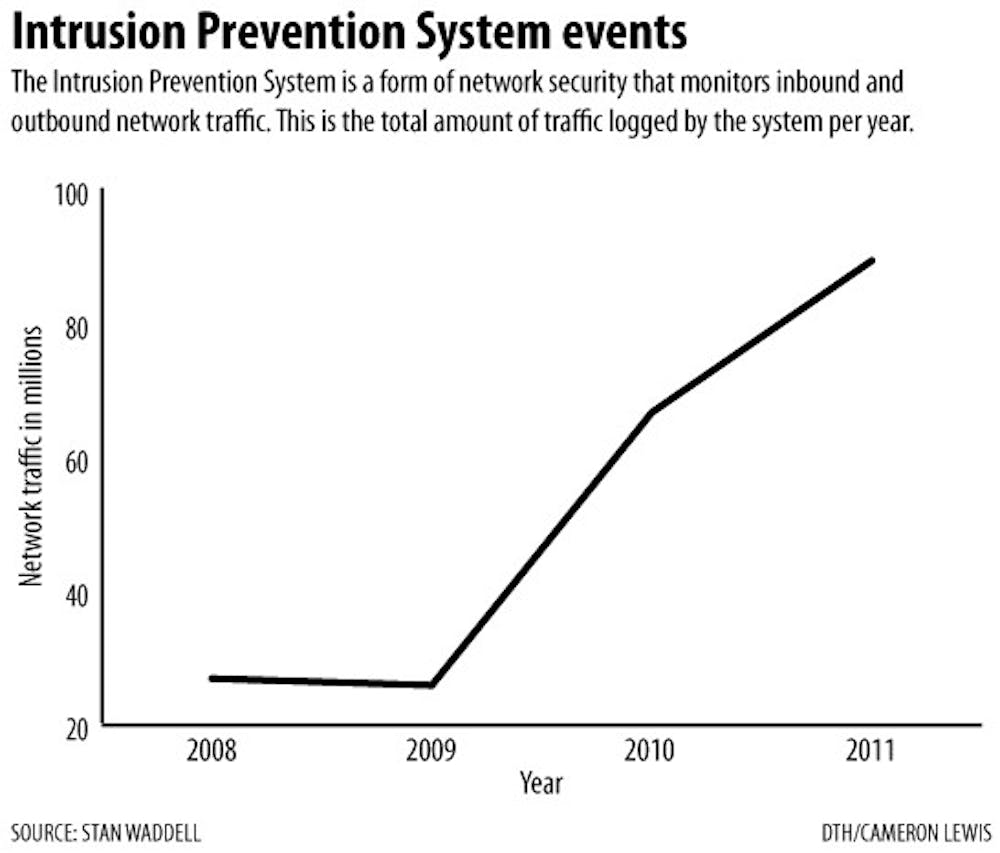CLARIFICATION: A previous version of this article overly simplified which actions will be affected by the March 30 change. The story has been changed to include the specific actions. The Daily Tar Heel apologizes for any confusion.
With attacks against the campus network increasing each year, UNC officials have taken another step toward stronger information security.
Starting on March 30, students and faculty accessing remote desktop tools and on-campus printing from off campus will have to go through a secure Virtual Private Network, verified by their Onyen and password.
Jim Gogan, director of networking for Information Technology Services, said the VPN acts as a tunnel that people connect through to access the campus network from their homes or personal computers.
“You can’t get into the campus network unless you have the VPN password.”
Stan Waddell, executive director for information security, said the number of unwanted connections on the campus network has been increasing.
These unwanted connections come from people trying to connect to the network that don’t have permission, and could include people trying to hack campus systems.
But these connections aren’t necessarily malicious, he added, and there’s no way to pinpoint how many are actual attacks.
He said ITS uses an Intrusion Prevention System, which monitors traffic coming into and out of campus, to detect potentially harmful attacks.



